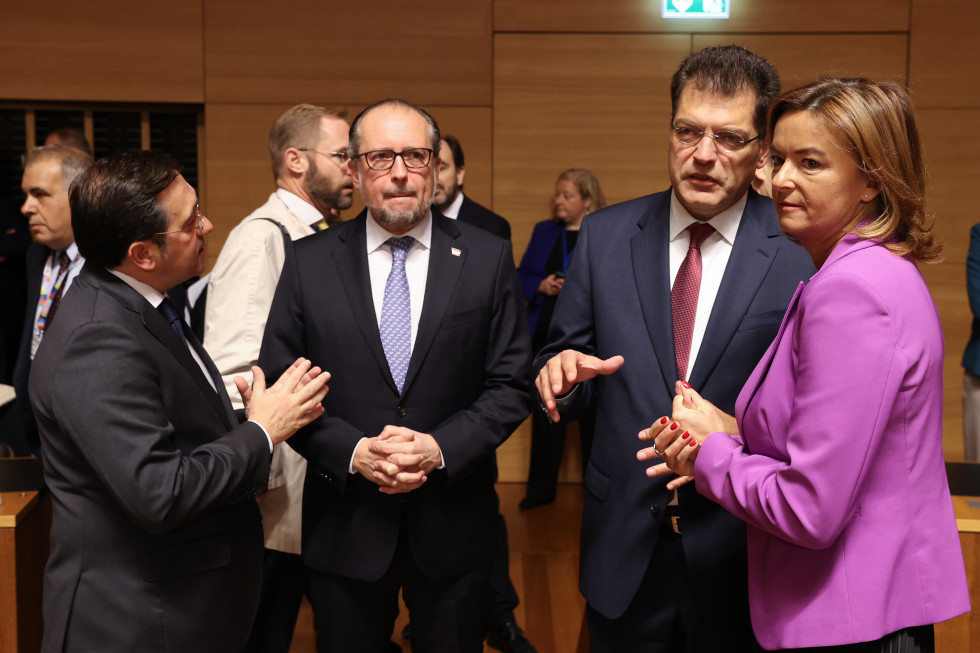Minister Fajon at the EU Council calls for a humanitarian ceasefire in the Middle East

Minister Tanja Fajon talking to European Commissioner Janez Lenarčič | Author EU
The ministers began by discussing the developments following the terrorist attack by Hamas on Israel and the situation in Gaza. In her address, Minister Fajon deplored the attack, stressing that "Slovenia strongly condemns any form of terror, the holding of hostages and the killing of innocent civilians." She also noted that the humanitarian crisis in Gaza was a matter of grave concern: "We are watching with serious concern the closure of hospitals, the lack of water and the shortage of food. We call for an immediate humanitarian ceasefire, the opening of humanitarian corridors and the delivery of humanitarian aid to civilians".
"A humanitarian ceasefire can also reduce the risk of the conflict spreading across the region," the Minister stressed, adding that international law and humanitarian law must be respected, and everything must be done to prevent the conflict from spreading. "We therefore call on both sides to refrain from further violence and the killing of innocent civilians," the Foreign Minister added.
The foreign ministers called for engagement with regional actors to prevent the conflict from spreading across the region. Minister Tanja Fajon supported efforts in this direction and advocated stepping up efforts to "resume peace talks as soon as possible, leading to a two-state solution and thus to peace in the Middle East".
The Minister also informed her colleagues of the additional funds Slovenia has offered to commit through the United Nations Relief and Works Agency for Palestine Refugees in the Near East to help Palestinian refugees.
European Commissioner for Crisis Management Janez Lenarčič gave an overview of the EU's humanitarian aid and called on the member states to help the people of Gaza.
In a debate on the Russian aggression against Ukraine, the ministers discussed the dimensions of the Russian aggression and talked about further assistance to Ukraine, including security commitments. Minister Fajon stressed that European assistance to Ukraine must continue. "Slovenia will certainly do so," she added. She supported the EU integration of Ukraine, noting that negotiations must run in parallel with the reform process. At the same time, attention and pro-active engagement with the Western Balkan countries must be maintained.
This was followed by an EU-Central Asia ministerial meeting, with the ministers expressing their willingness to further strengthen the existing ties and cooperation based on shared values and mutual interests. They discussed new dynamics in regional cooperation, the promotion of sustainable connectivity and the strengthening of security resilience. They jointly endorsed the EU-Central Asia Roadmap for Deepening Ties between the EU and Central Asia.
Minister Fajon advocated the strengthening of cooperation between the two regions and welcomed the adoption of the Roadmap. She commended Central Asia's active role regarding climate security, with a focus on water and security, and went on to highlight Slovenia's excellent cooperation with the region in various areas.

